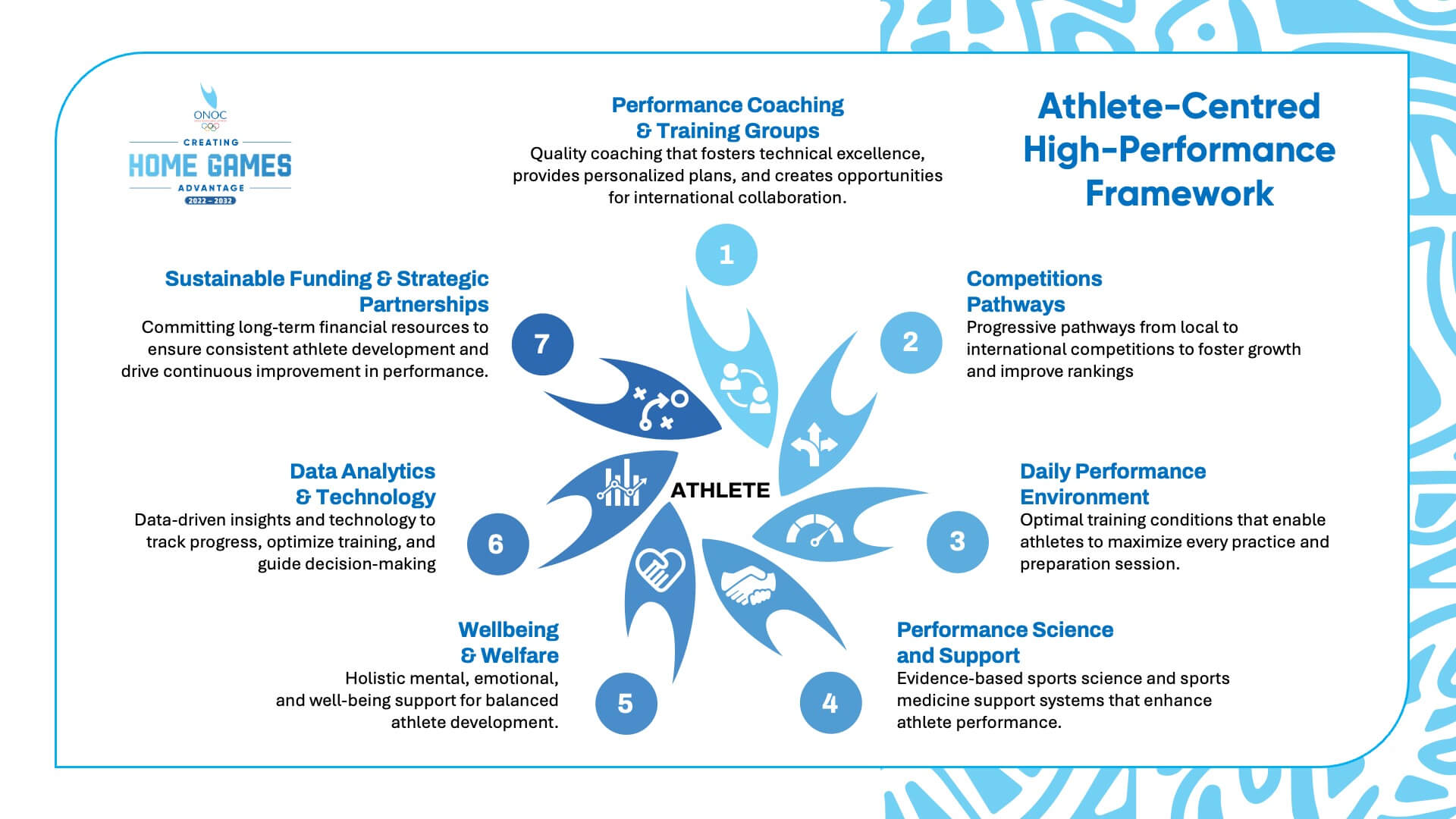Website Guide HERE

X

(Nadi, Fiji) – The Oceania National Olympic Committees (ONOC) today launched the VALD Systems Testing Workshop in Nadi, Fiji, aimed at enhancing athlete performance across the Pacific region.
The 4-day workshop, coordinated by the Oceania Sports Education Programme (OSEP) is a key step in ONOC's ongoing efforts to support high-performance sports, combining cutting-edge technology with innovative training approaches to prepare athletes for future Olympic and Paralympic success.
Inoke Bainimarama, Executive Director of ONOC, opened the workshop with a compelling address on the vital role of data analytics and technology in modern athlete development.
“As we continue to strengthen our support to high-performance sport in the region, it’s essential that we align ourselves with tools and technologies that can elevate our athletes to new levels,” Bainimarama emphasized.
The VALD Systems Testing Workshop is part of ONOC’s High-Performance Support Framework, which centers the athlete in every aspect of training and competition preparation.
With a focus on eight interconnected pillars, including data analytics and technology, ONOC seeks to reinforce the support structures that ensure sustained, top-tier athlete performance.

Bainimarama outlined the importance of advanced technologies such as VALD systems in optimizing training, monitoring performance, and building local capacity for long-term sustainability.
He stated, “Harnessing advanced technology and data-driven insights is no longer a luxury - it’s a necessity.” The workshop is also a crucial part of ONOC’s support to upcoming Games including the LA2028 and B2032 Games, focusing on innovative athlete preparation.

Participants in a data collection exercise for the NordBord
Bainimarama highlighted how the integration of VALD systems will support the region’s goal of providing athletes with every advantage to compete at the highest level.
"This technological focus aligns directly with ONOC’s Home Games Advantage Programmes aim to improve athlete support systems and enhance competitive readiness for the Los Angeles 2028 and Brisbane 2032 Games," he said.

Bainimarama concluded by stressing the significance of the workshop’s outcomes in shaping long-term athlete success. “This training is not just about technical expertise—it’s about ensuring that the knowledge gained here translates into actionable insights that benefit coaches, athletes, and the future of Pacific sport.”
As part of ONOC’s broader strategy, the workshop also underscores the importance of upskilling regional coaches to foster coaching excellence, ensuring that the Pacific’s athletes are well-represented at future Games.
“The insights and knowledge shared here today will play a pivotal role in ensuring that our athletes are prepared to compete on equal footing with their global counterparts,” Bainimarama said.
“Together, we can make a tangible difference in the daily training environment and the long-term development of our athletes.”
The workshop is facilitated by Kim Wilson an experienced physiotherapist and Business Development Manager at VALD who specialises in integrating cutting-edge technology into performance sports and clinical practice.
###
About ONOC
Established in 1981, the Oceania National Olympic Committees (ONOC) is one of five Continental Associations. It looks after the interests of 17 member nations in the Oceania Region, including Australia and New Zealand as well as seven associate members.
###
For more information, please contact;
Sitiveni Tawakevou
Chief Communications Officer (Acting)
sitiveni@oceanianoc.org
###
Digital Channels
For up-to-the-minute information on ONOC and regular updates, please follow us on Facebook, Twitter, Instagram LinkedIn and YouTube.